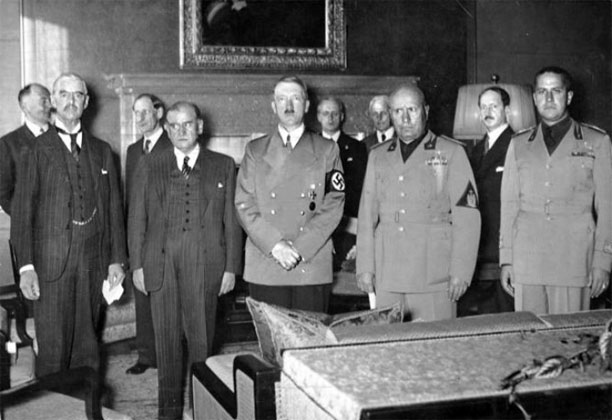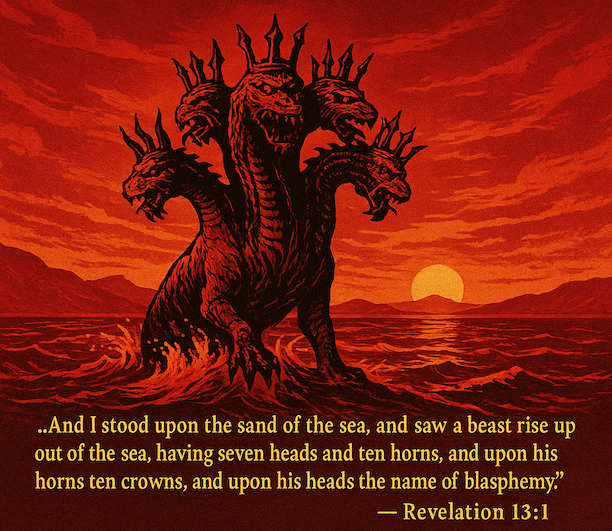Pages: << 1 ... 9 10 11 12 13 14 15 16 17 18 19 ... 1278 >>
Vanishing Point: How the American Surveillance State Loses 600,000 People a Year
Ned Lud
I. The Vanished Multitude
"Behold, the days come," saith the prophet Amos, "that I will send a famine in the land… not a famine of bread, nor a thirst for water, but of hearing the words of the Lord: and they shall wander from sea to sea… and shall not find it." (Amos 8:11–12)
In the belly of the algorithmic empire, hundreds of thousands vanish yearly without resolution or return. The land of liberty—adorned with surveillance grids, biometric checkpoints, and predictive policing algorithms—officially records over 600,000 missing person entries each year, according to the FBI's National Crime Information Center (NCIC, 2024). That is 1,644 human beings per day vanishing into the cold data void.
On Some Capital Issues About the Warfare
Dr. Vladislav B. Sotirović
War and Capabilities
The destiny of warfare depends very much on actors’ relative capabilities. By definition, different capabilities are the means of the actor in international relations (IR) to achieve certain goals. Some of those capabilities can be tangible and, in principle, easy to measure, but others (such as morale or leadership) can be very intangible and, therefore, can only be estimated in practice.
Concerning global politics, IR, and warfare, there are at least five tangible capabilities of the actor (in principle, of the nation-state) that can be measured and consequently be known:
THE INVISIBLE INK OF POWER: Why the Mainstream Media Fails-and Why Alternative Journalism Must Survive
Ned Lud, for The People’s Voice
“Freedom of the press belongs to those who own one.”
- A. J. Liebling
In an era where the news cycle spins faster than a centrifuge on meth, the question is no longer what we know, but who decides what we’re allowed to know. This urgency demands our attention and action.
Welcome to the ghost train of manufactured consent, where fact is filtered through profit margins and dissent algorithmically disappears.
Mainstream media, once imagined as the fourth estate safeguarding the public from the predations of the powerful, has devolved into a caged jaundiced lapdog-sick with access addiction, trembling at the feet of corporate masters, and draped in the polyester suit of false neutrality.
College Protests Against Israeli Apartheid and Genocide Were Not Just Legal, They Were the Morally Responsible Thing to Do
By Mark Aurelius
Once again, a Medusa-like monstrosity, namely the U.S. Congressional Committee on Education and the Workforce, has reared its snaky-hair of a harpy head, in America’s social sanctuary, or once-regarded chambers of truthful examination—indicative of the lost soul of the great American Revolution (at least in storyline).
Whereas nowadays, these same hearing rooms are at best a farce, or closer to worst as an act of treason against its own society, controlled by a foreign entity known as the rogue and roughshod Zionist state of Israel.
Moreover, these hearings, although less hysterical than of last year, but still composed of self-righteous rants, and still alleging rampant antisemitism across America, are again amounting to camouflaged lies meant to cover up the fact that the United States Government, is, itself, indisputably complicit in Israeli actions of genocide against the Palestinian people in Gaza, and equally against other Palestinians and non-Jewish peoples across the area including in the West Bank, Lebanon, Syria, etc.
THE DIGITAL ANTICHRIST: Google, Bing, and Their Billionaire Handlers – A Unified Screed of Fire and Broken Code
By Ned Lud
Dedicated to the Ghosts of All Broken Machines
"And I stood upon the sand of the sea, and saw a beast rise up out of the sea, having seven heads and ten horns, and upon his horns ten crowns, and upon his heads the name of blasphemy."
— Revelation 13:1
Behold the Leviathan of Our Age—not one beast, but two mouths (Google and Bing) fed by two hands (Brin and Gates), all writhing in service to the same rotting corpse of liberty. This is no mere corporate rivalry; this is the final merger of Silicon Valley and the Surveillance State, a hydra whose breath smells of burning server farms and stolen elections.
I. THE TWIN MOUTHS: Google and Bing as False Prophets
The Forbidden Dossier: How U.S. Factory Farms and Big Ag Silence Dissent, Poison Your Plate, and Bury the Science
What Tyson, Cargill, and the FDA Don’t Want You to Know About the Rot at the Heart of America’s Food Supply
In a world anesthetized by convenience and corporate propaganda, where the average consumer’s trust is hijacked by jingles and mascots, an insidious machine churns beneath the veneer of nutrition. The global food supply—our lifeblood—is no longer cultivated but commodified, no longer farmed but fabricated. In this exposé, we reveal the rot within the industrial agri-food complex, a cartel of titanic conglomerates whose crimes against humanity, nature, and truth have been strategically obfuscated beneath the language of labels, legality, and "lifestyle."
This is not just a list of violations. It is a portrait of systemic malfeasance, painted in arsenic, pink slime, and child labor. Each scandal is not an anomaly but a business model. Each headline not an error but a feature. Let us begin the unmasking.
1. Tyson Foods: The Poultry Patriarch of Poison
Can the Annual Theft of $521,000,000,000 from the Federal Budget Be Stopped?
Paul Craig Roberts

Democrat politicians led a break-in at a New Jersey ICE facility. In Worcester, Massachusetts, Democrat city council member Etel Haxhiaj led an assault on local police and federal officers in an effort to prevent apprehension by ICE of a violent immigrant-invader that the Biden scum permitted to illegally enter America in August, 2022. Local police demand action agains Etel Haxhiaj for assaulting police officers, but of course the Democrats support Etel Haxhiaj’s violence against the police, and nothing will happen to her unless the feds step in. https://nypost.com/2025/05/10/us-news/chaotic-video-shows-massachusetts-ice-arrest-being-disrupted-by-unruly-crowd-leading-to-2-arrests/
The fact that the Democrats and their judges are so determined to keep immigrant-invaders from being deported should tell us something. We should also learn something from all the foreign names of Democrat politicians and judges. The Camp of the Saints has deeply advanced into America. The Democrats have made it clear that they intend to rule us in behalf of the millions of immigrant-invaders the Democrats have intentionally brought into our country.
Forbidden Insider Leaks: The Thought Police: May 2025 Whistleblowers Exposé NSA-Mossad-AI-Contractors Mind Control
Bridget Vira Sanders
I. The Algorithmic Panopticon: How AI Became Big Brother’s Enforcer
PRIMARY ONLINE THOUGHT CONTROL PROGRAMS:
1. Initiative Aegis
A global surveillance protocol masquerading as a cyber-defense coalition. Ostensibly tasked with "protecting democratic infrastructure," it operates as a clearinghouse for biometric aggregation, psychological profiling, and anticipatory behavioral control. "Aegis" evokes mythic protection; in truth, it shields the watchers, not the watched.
2. Directive Vanguard
Frontline policy implantation—covert legislative scaffolding inserted into international law under the guise of counterterrorism. It standardizes pre-emptive governance, using AI-driven legal synthesis to anticipate and nullify ideological dissent before it manifests.
Our Algorithmic Inquisition: How Google, YouTube, Facebook, and Bing Became the Iron Maidens of Speech
By Tracy Turner
I. Prologue: The Age of Filtered Perception
We were promised a digital renaissance. We got a velvet dystopia.
Once marketed as the Gutenberg presses of the 21st century, Google, YouTube, Facebook, and Bing now function as an Unholy Quadrumvirate of perception managers. Cloaked in the priestly robes of "community standards" and "trust and safety" and (Government-Corporate) “trusted sources” these corporate juggernauts have abandoned their founding myths of openness and now operate as techno-theocratic enforcement arms of empire. What they call "content moderation" is, in effect, algorithmic heresy hunting—replete with excommunications, digital burnings-at-the-stake, and silent disappearances into the shadow realm of the unseen feed.
You realize they are stuffing “community standards” down your throat like really bad Castor-Oil, choking the life out of you with their “medicine.” Sundar Pichai, Neal Mohan, Mark Zuckerberg, and Satya Nadella are exorcizing your memory of what it meant to be free right out of your soul.
Some Crucial Features of Contemporary Warfare: War Crimes and Warlordism
Dr. Vladislav B. Sotirović
War Crimes and War Criminals
After WWII, there was a growing number of significant non-state actors in international relations (IR), like the United Nations (UN) or various specialist agencies connected to it. Nevertheless, two key developments stimulated the growth of such organizations after 1945:
- The realization that building cooperation and collective security was a much wider task than merely deterring aggressors in traditional attacks on the fixed international order. It, therefore, involved finding ways of agreeing on international policy in a variety of practice areas.
- The coverage of international law is increasing to include new foci, including human rights, social justice, the natural environment, and war crimes.












